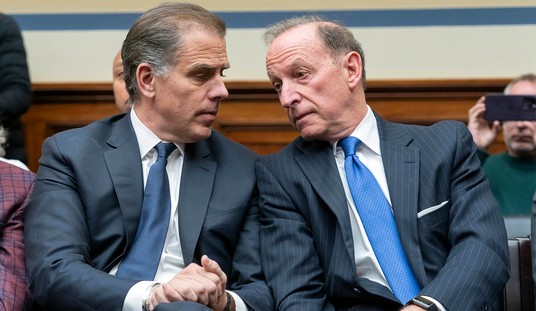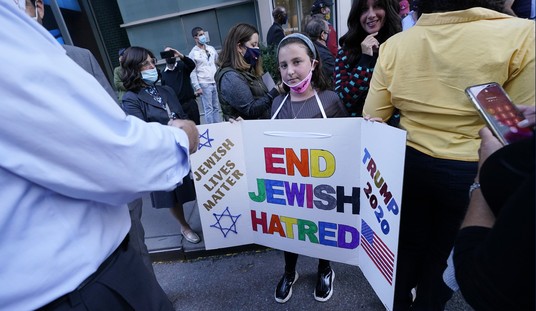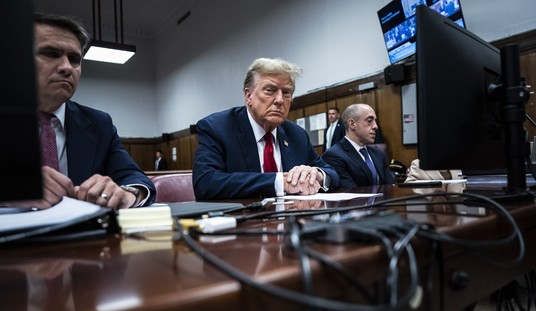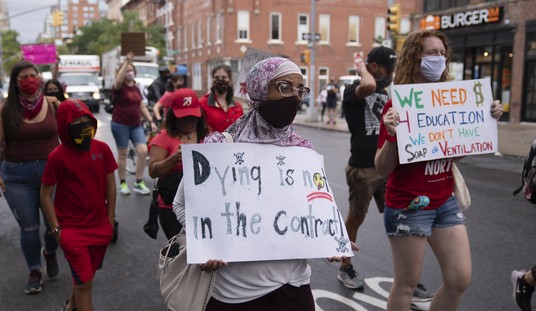Last August, then-Gov. Deval Patrick (D-MA) signed a gun control omnibus bill, which enhanced background checks, created a new set of crimes involving firearms, and altered “the definition and some punishments relative to firearms trafficking.” It also mandated local police to assign a school resource officer in their respective districts, and required the reporting of mental illness or substance abuse incidents into the federal background check database (via Mass Live [8/14]):
Gov. Deval Patrick signed into law on Wednesday [August 13, 2014] a bill reforming the state's gun laws, with provisions focused on school safety, mental health, background checks, and enhanced criminal penalties for gun crimes.…
The law will bring Massachusetts into compliance with a federal background check system by requiring the state to report to a federal database any mental illness and substance abuse commitments. It creates new firearms crimes, like assault and battery by discharge of a firearm, and enhances sentences for existing gun crimes.
…
The law makes a felony conviction a lifetime disqualifier for having a gun license. It requires the state to develop an online tool by which anyone selling a gun privately must register information about the buyer and seller and receive approval to conduct the sale. It requires gun dealers to conduct criminal record checks on employees. It also includes additional data reporting requirements related to tracing guns used in crimes.
This is deep blue Massachusetts; it could have been worse. The Bay State already has some of the most stringent gun laws on the books, as do most states in the liberal Northeast and New England*. Yet, these new laws–some of which aren’t necessarily terrible (the NRA’s armed officer in schools initiative was approved)–didn’t stop Massachusetts residents from lining up to apply for their concealed carry permits, which saw a significant increase since Gov. Patrick signed the new pro-gun control measures into law (via Boston Globe) [emphasis mine]:
Recommended

Statewide, the number of active Class A licenses — the so-called license to carry category that broadly includes the right to carry a concealed weapon — grew nearly 12 percent between 2013 and 2014. That was a significantly greater jump than in past years, a Globe review of data from the Firearms Records Bureau found.Overall, the number of active gun licenses of all types grew 5 percent, with a total of 355,272 in the state last year. All but five of Massachusetts’ 351 towns and cities saw increases in the number of active Class A licenses from 2013 and to 2014. The new legislation, which passed in August, built on the state’s 1998 gun laws, often considered the toughest in the country.
Among the provisions included in the law was tightening the requirements for applicants seeking the state’s Firearm Identification Card to match those of the Class A license — perhaps most notably, adding a provision that allows police chiefs to petition the courts to deny a Firearm Identification Card to an applicant not judged suitable. The Firearm Identification Card lets holders possess and transport a rifle or shotgun.
…
The new law did not change the basic requirements to get a Class A license. Applicants must still pass a background check and get approval from their community’s licensor, often the chief of police. New applicants must also provide proof of firearm safety training. Even then, firearm licenses need to be renewed every six years.
…
With about 318,000 licensees in 2014, the Class A license was the most popular in the state; only about 34,000 residents held Firearm Identification Cards.
…
The increase in Class A licenses was particularly pronounced from 2013 to 2014 in several Eastern Massachusetts communities, including Lowell, with a 21 percent jump, Quincy, with an increase of 20 percent, and in Boston, with an 18 percent hike.
Now, the separate classes for firearms possession and carry are just ridiculous. The Globe also delved into these sub-classes in March of 2013.
Class A licenses “allows him or her to carry not only a concealed weapon but loaded, large-capacity handguns, rifles, and shotguns without limits on use.”
The Class B license, which was eliminated by the new law, prohibited concealed carry, but allowed the purchasing of any weapon, permitted under a Class A (concealed carry) license–with the exception of a “large-capacity handgun.” No one really had these, which is why it was axed last summer. The Massachusetts Gun Owners’ Action League noted on their website that a Class B license holder is “forbidden to carry ‘concealed and loaded on a public way.’ That means the person is denied the right to self-defense outside the home.” Also, you’re prohibited from transporting a loaded firearm with a Class B license–and it’s “required to have the gun unloaded and locked in a case or in the trunk.”
Lastly, a Firearm Identification Card allows a resident to buy and own “small-capacity” shotguns and rifles. Handgun purchases are prohibited.
Regardless, separate permits to buy different classes of firearms, with varying degrees of carrying rights. It’s nonsense–and one could make the argument that it’s constitutionally questionable. Nevertheless, good on the Bay State for applying for permits that exercise their Second Amendment rights–even if they do come with absurd restrictions.
*Vermont, Pennsylvania, Maine, and New Hampshire are notable exceptions. Vermont is a constitutional carry state, meaning that no permit is required for open or concealed carrying of a firearm. Pennsylvania, Maine, and New Hampshire have shall issue carry laws. If you meet the criteria established regarding these states' carry laws, you are given a concealed carry permit without any interference from the state. In Virginia, if you pass a background check and submit a NRA certification in basic firearm safety–or have an equivalent certification in a safety course–the state has to give you a CCW permit within 45 days. You can also take an online test in firearm safety, but taking the a safety course by a NRA-certified instructor is the best option.There's no such thing as too much safety regarding handling firearms and exercising your Second Amendment rights.

























Join the conversation as a VIP Member